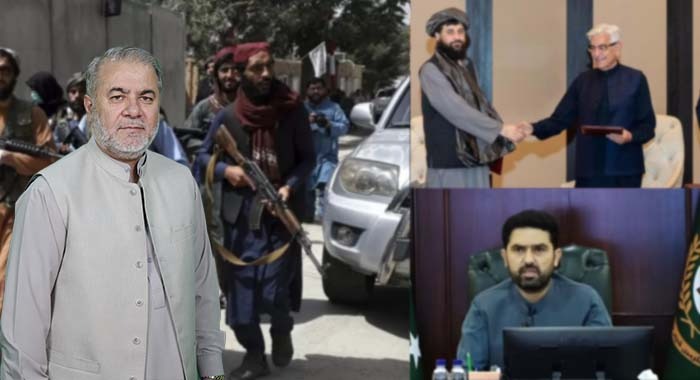Khyber Pakhtunkhwa (KP) once again stands at a critical junction caught between political disarray, intensifying militancy, and uneasy relations with Afghanistan. The province’s new chief minister, Sohail Afridi, faces the formidable task of navigating a complex security environment while trying to unite a deeply divided party and restore the people’s trust in governance. His leadership will be tested not only by internal political rifts but also by the volatile situation along Pakistan’s western frontier.
The challenges before Afridi are immense. His elevation came at a time when his party, PTI, was struggling with internal divisions and leadership disputes. Many within his ranks remain dissatisfied, and a considerable section of the party continues to direct its anger toward the federal government and security institutions. While such rhetoric may have served a purpose when they sat in opposition, Afridi must now realize that governance demands pragmatism, cooperation, and responsibility. From the chief minister’s chair, the realities of administration appear very different.
The stability of KP, and by extension Pakistan, depends on a constructive working relationship between the provincial government, the federation, and the security forces. These forces are not outsiders—they are sons of the same soil who have long defended this frontline province from terror. Without their cooperation, no provincial administration can hope to restore peace. Afridi and his allies must therefore engage Islamabad and the security establishment in meaningful dialogue to address the province’s security and administrative challenges.
At the same time, Afridi’s biggest political test lies within his own party. With senior leader Imran Khan in jail, there is growing pressure from party workers and supporters for cabinet positions, advisory roles, and influence. Yet Afridi must resist such demands and prioritize competence over loyalty. His government’s credibility now hinges on the selection of honest, capable ministers who can deliver results. The public will judge this administration not by its rhetoric, but by its performance. The party has already served two terms, with little to show beyond the health card scheme—an initiative plagued by irregularities and dual systems that burden both public hospitals and the exchequer. This third government cannot afford more of the same.
Beyond internal politics, the province faces renewed security threats emanating from across the Afghan border. In recent months, Pakistan has witnessed a surge in militant attacks—particularly in Dera Ismail Khan, Bannu, North and South Waziristan, and the Khyber tribal district. Islamabad has repeatedly urged Kabul to rein in anti-Pakistan elements operating from Afghan soil. Yet despite multiple rounds of engagement, little progress was achieved until recently.
A breakthrough, however modest, emerged during the talks held in Qatar between Pakistan and Afghanistan. Mediated by Qatar and Turkey, the dialogue offered a much-needed opportunity for both sides to de-escalate tensions and reopen channels of communication. The two countries reportedly agreed not to act against each other or allow their territory to be used for hostile activities. A follow-up meeting is scheduled for October 25 in Istanbul, where the focus will likely shift to addressing Pakistan’s longstanding concerns about the presence and operations of the Tehreek-e-Taliban Pakistan (TTP) in Afghanistan.
Pakistan’s complaints are serious and longstanding. The TTP leadership has found safe havens across the border, planning attacks and targeting Pakistani civilians and security forces. Meanwhile, the closure of key border crossings and trade routes has inflicted economic pain on both sides. In this context, the involvement of Qatar and Turkey as mediators offers a glimmer of hope. These nations have shown themselves to be sincere friends of both Islamabad and Kabul, capable of fostering dialogue where confrontation once prevailed.
However, the road ahead remains uncertain. Much will depend on the tone and substance of the upcoming Istanbul talks. Pakistan and Afghanistan share deep historical, ethnic, and economic ties, and they cannot simply afford perpetual hostility. Over 1.2 million Afghan refugees still live in Pakistan, and much of Afghanistan’s trade passes through this country. Geography and shared destiny cannot be changed. It is therefore imperative that both nations prioritize cooperation over conflict.
Afghanistan, too, faces mounting internal pressures. The Taliban government, having seized power through force, now finds itself struggling to deliver governance. Widespread restrictions on education—especially for women—along with limits on media freedom and civic participation have generated growing resentment among the Afghan populace. In today’s interconnected world, suppressing dissent through force or fear is no longer viable. People see, hear, and share everything, and the deprivation of basic rights only fuels frustration. The Taliban’s challenge is to balance ideological rigidity with the practical demands of governance and legitimacy.
Another concern is the Taliban’s multi-directional diplomacy. Kabul maintains open channels with India, Moscow, Beijing, and Tehran while simultaneously engaging with Pakistan in peace talks. As a sovereign state, Afghanistan has every right to pursue its interests globally. Yet it must also honor its commitments particularly the Doha Agreement’s pledge that Afghan soil would not be used against other nations. Unfortunately, this promise has yet to be fully upheld.
History reminds us that whenever Afghanistan has faced adversity, Pakistan has been its most immediate refuge offering shelter to millions of displaced Afghans and opening its borders in times of crisis. That legacy of compassion and brotherhood must not be forgotten. It is now the responsibility of both governments to curb the rising tide of hate propaganda that seeks to pit their peoples against one another. Social media campaigns and inflammatory rhetoric only breed mistrust and damage prospects for peace.
Despite the challenges, there remains cautious optimism. Dialogue has resumed, and regional partners are invested in stability. For Khyber Pakhtunkhwa, the restoration of peace is not merely a provincial issue—it is a national imperative. The province’s fate is intertwined with that of Afghanistan, and its security is inseparable from regional harmony. The coming weeks, particularly the Istanbul talks, will reveal whether both sides can finally turn confrontation into cooperation.





